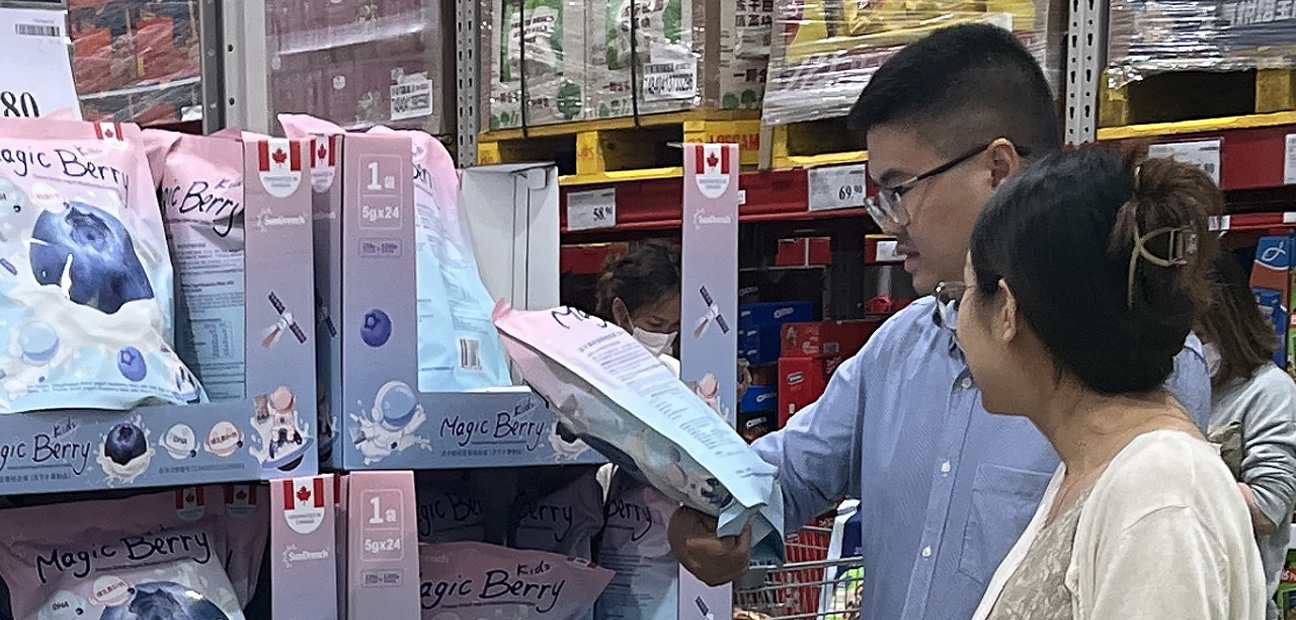- May 10, 2025
- 0 Comments
- By MelangeMC
Let’s play a quick game. Imagine you’re in a grocery store and spot a new snack on the shelf. The packaging says it’s made from freeze-dried Canadian blueberries and creamy yogurt. Naturally healthy, crunchy, fun. What words pop into your mind? Fresh? Natural? Pure? Maybe family-friendly?
Now, what if that same product was called “Magic Yogurt”?
Feels different, right? For some people, “magic” might spark curiosity or whimsy. For others, especially health-conscious parents, it might sound artificial, like there’s something in the food that doesn’t belong.
And that’s exactly the branding crossroads SunDrench faced.
Why “Magic Yogurt” in the First Place?
When SunDrench developed its line of freeze-dried yogurt and berry snacks, management wanted a name that captured the transformation, turning liquid yogurt into a crunchy delight. For the Chinese market, “Magic Yogurt” and “Magic Berry” made sense. The word magic was playful, fun, and easy for kids to get excited about. Imagine telling a child: “This snack is magic — it turns soft yogurt into a crispy treat!” Instant appeal.
But here’s where it gets tricky: what’s charming in one culture doesn’t always translate the same way in another.
What the Research Tells Us
“A brand name must perform well across sound, meaning, and adaptability in each market.”
– Nataly Kelly, Harvard Business Review, Name Your Brand with a Global Audience in Mind
“When a brand name does not align with product expectations, consumer trust can quickly erode — especially in health-related categories.”
– Erdener Kaynak et al., Cross‐cultural Factors in International Branding
“Playful or hedonic names can work well in fun contexts, but consumers seeking health and purity respond more positively to authentic, straightforward names.”
– Andrea B. Müller & team, Birmingham University study on brand naming
The Cultural Layer: China vs. Canada
In China, the word “magic” feels engaging and aspirational for kids. It’s playful, and parents may accept a little fantasy if it encourages healthier snacking. But there’s nuance. The internet slang 科技与狠活 (kējì yǔ hěn huó) “technology and powerful gimmicks” has grown popular to criticize foods that rely too much on additives or artificial processes. While technology in food is welcomed when it enhances freshness and safety, anything that feels overly “manufactured” raises suspicion. A snack called “Magic Yogurt” might spark delight among kids but caution among parents who double-check the ingredient list.
In Canada, the story shifts. Here, “magic” is more likely to be equated with shortcuts, gimmicks, or artificial qualities, the opposite of the natural and authentic positioning parents expect from yogurt and fruit snacks. Instead of curiosity, it raises a red flag. Canadians prefer words like “organic,” “natural,” or “whole,” which signal credibility and transparency.
The SunDrench Pivot
So what happened? In early trials, Chinese kids loved the idea of Magic Yogurt. But in Canadian focus groups, parents leaned away. They wanted simplicity and honesty. SunDrench listened, pivoting toward names that emphasized the crunchy factor, nutritional value, and the authentic yogurt-and-berry base. This strategy resonated strongly overseas, where the playful branding clicked with families and distributors. In fact, SunDrench has achieved greater success in international markets than at home in Canada. Today, while the brand thrives abroad, the products are sold under different names domestically to better align with Canadian consumer expectations.
The Takeaway
In China, a dash of fantasy works, as long as it doesn’t hint at being fake.
In Canada, authenticity beats whimsy every time.
Across markets, brand names aren’t just words, they’re cultural signals that shape trust.
A name is not just a label; it’s a story. And the Magic Yogurt story shows how one word can change everything, depending on where in the world you’re standing.
One Last Question
So, back to you: if you saw a snack called Magic Yogurt on your shelf today, would you buy it for your kids? Or would you reach for something with a name that simply said what it was?





